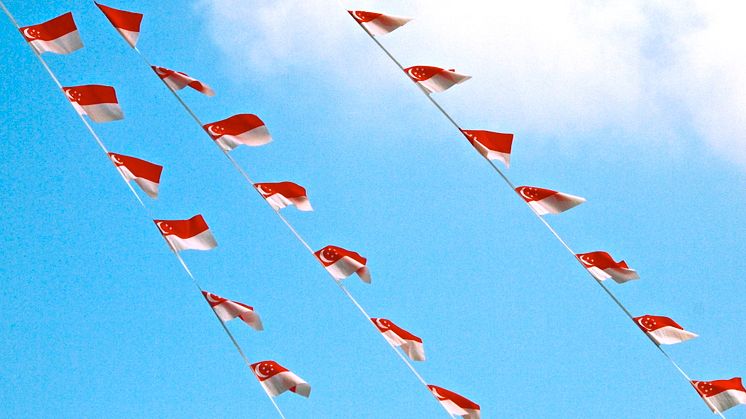
Blog post -
How this Singapore National Day song reflects evolving views of IP
Singapore marks its National Day every August, and one of the unique features of this annual celebration is the commissioning of a new National Day theme song. While the 2021 theme song The Road Ahead has been warmly received, that’s definitely not a sure thing every year — in fact, one of the hallmarks of the run-up to the National Day Parade is a spirited public debate over whether the theme song that year is any good.
Clearly, Singaporeans feel strongly about these tunes, and the topic of National Day songs even entered the public discourse months ahead of schedule this year. In March 2021, Joseph Conrad Mendoza, a composer in India, claimed that he wrote the original version of Count on Me, Singapore, a well-known National Day song that debuted in Singapore in 1986.
Mendoza said he had written the song in 1983. On social media, videos showed what appeared to be students in India singing a version of the song where references to “Singapore” in the lyrics had been replaced with “India”. The rights for this version, which was titled We Can Achieve, had been sold to a publishing house in 1999 and then released as part of a CD.
Hugh Harrison, the composer of Count on Me, Singapore, strongly refuted these claims. So did Singapore's Ministry of Culture, Community and Youth (MCCY), which had commissioned the song and holds the copyright to it. Mendoza soon withdrew his claims, and a MCCY statement reiterated that “it is important that our rights to the song are protected and that there remains no doubt as to our origination and ownership of the song”.
How it all began
There is actually a little more backstory to this song, which reflects how views of intellectual property have evolved. At the time of the song’s 1986 debut in Singapore, Harrison, a Canadian then working for advertising company McCann Erickson, was not identified publicly as its composer. This was because the government had concerns that the song would not be embraced if Singaporeans knew it was written by a non-Singaporean.
His contributions weren’t exactly a secret though, and his role gradually became more well-known. In a 2021 interview, Harrison said: “There has been increasing awareness over the years (of my involvement with National Day songs). And then, of course, Singapore formally adopted international copyright laws and they (the authorities) had to put my name on it.”
In 2004, Singapore’s Copyright Act had been amended to align the law with the US-Singapore Free Trade Agreement 2003. And more recently – right around the time the copyright of Count On Me, Singapore was making headlines this year, in fact – the Ministry of Law and the Intellectual Property Office of Singapore launched a public consultation exercise to seek feedback on the draft Copyright Bill introduced to update and replace the current Copyright Act.
Among its goals: To strengthen the copyright regime in Singapore, and stay abreast of changes in how content is created, distributed, and used. And one key proposed change: “Creators of photographs, portraits, engravings, sound recordings and films, whether commissioned or otherwise, will by default be the first owner of copyright unless otherwise prescribed by contract. This changes the current position, where the commissioning party owns the copyright by default.”
That will help put creators in a better position when it comes to negotiating with commissioning parties, and shines a brighter spotlight on their talent and their work. The new Copyright Bill is expected to be enacted into law in November this year. In the meantime, here’s hoping that the names of future creators of National Day songs will be as well-known as their catchiest tunes.
